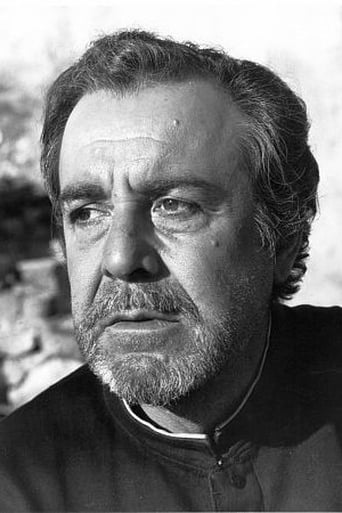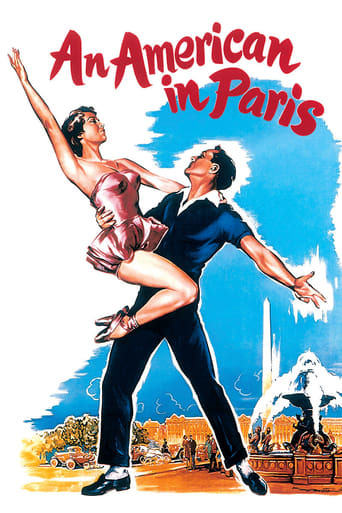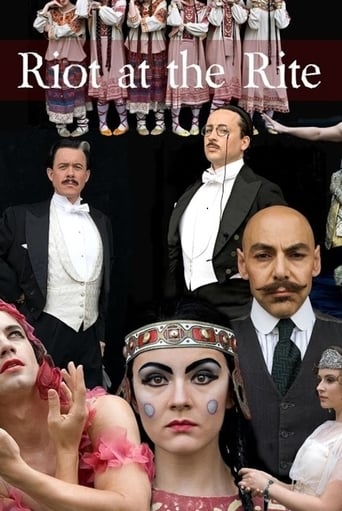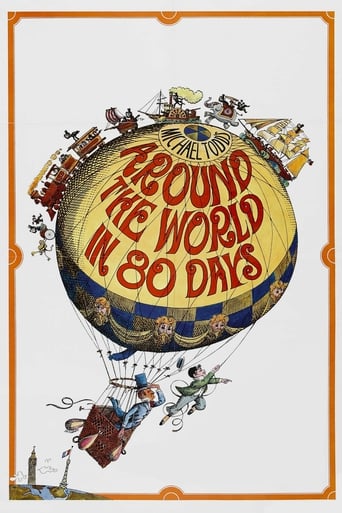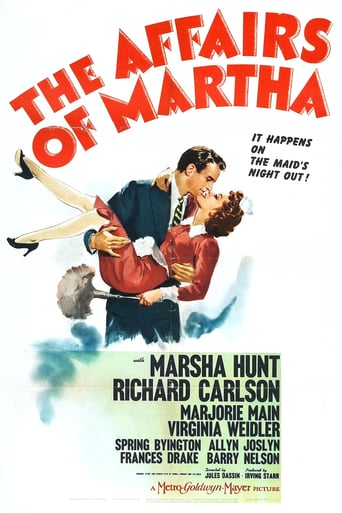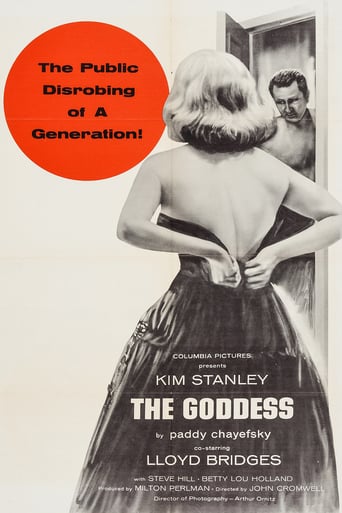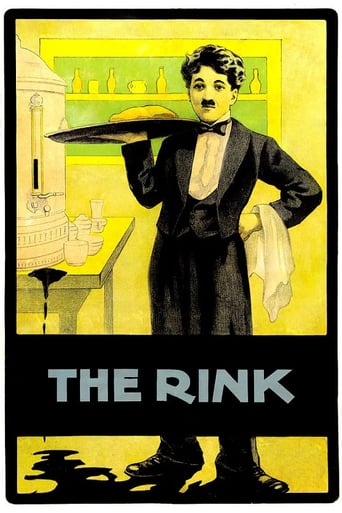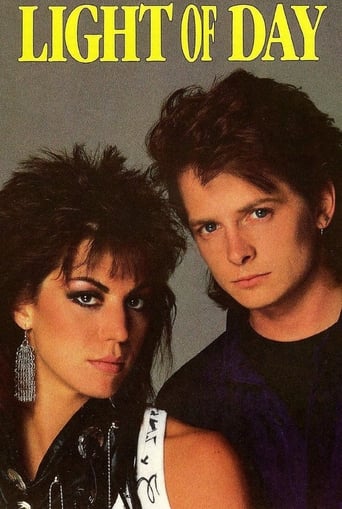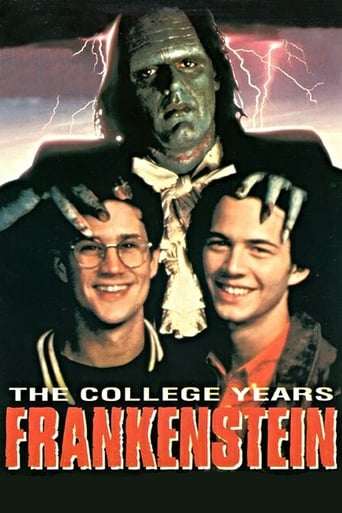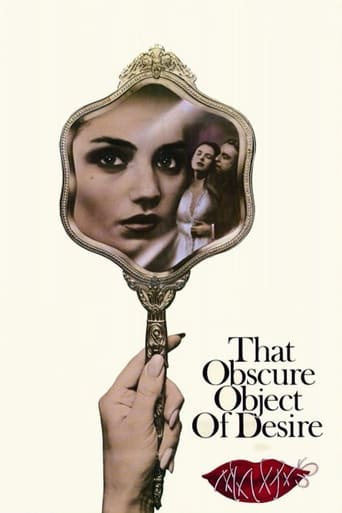

That Obscure Object of Desire (1977)
After dumping a bucket of water on a beautiful young woman from the window of a train car, wealthy Frenchman Mathieu, regales his fellow passengers with the story of the dysfunctional relationship between himself and the young woman in question, a fiery 19-year-old flamenco dancer named Conchita. What follows is a tale of cruelty, depravity and lies -- the very building blocks of love.
Watch Trailer
Cast
Similar titles
Reviews
The Worst Film Ever
If you don't like this, we can't be friends.
A Masterpiece!
The film makes a home in your brain and the only cure is to see it again.
A middle-aged man is obsessed with a young woman who remains elusive. In his final film, Bunuel keeps the narrative more straight-forward than in many of his earlier examples of surrealism. The only notable aspect to the story is that the title character, a woman who is by turns icy and flirtatious, is played by two actresses. No explanation is offered for this odd casting and the switch between hot Molina and cold Bouquet occurs without any rhyme or reason. Naturally, the critics and Bunuel worshippers declare the dual casting gimmick a stroke of genius. There's a clumsy subplot involving terrorists that leads to a predictable conclusion.
By the end of the film - and only because I like French films and locations was it viewed without fast-forwarding - a guess began to form on the theory of interchangeable actresses, but just barely, because the Bouquet character also is deferring, postponing, and teasing about flirtation, phallus-teasing, and seduction in her early, similarly amiable encounters with the male lead. OK, on top of the dual-actress, one character conceit is the flashback narrative story locomotion on the train to diffuse further the confusing, the train characters all appearing to be affirming and approving in their voyeurism, which is/was unlikely. The cold shower action near the opening, so-to-speak, so as not to plant a spoiler, was apropos, a welcome clever breath of something memorable and comedic. Then there's the violence toward women who certainly deserved some profoundly negative consequences, and that being left unquestioned. Is that French? French in the late-'70's? Or just late '70's sensibility? Add to this messiness some of the usually lovely French female nudity; here it was mostly superfluous. The whole running-time engendered a "what's going-on" experience. Call a film "art" and any and everything is justified by pseudo buffs and celluloid artistes, and their wannabes. Yes, obsession meets insincerity, wily female opportunism, and reverse exploitation. But sometimes films, French, or not, are just bad, even when populated by a lovely cast and labeled black comedy, "cult," or "artistic." Good premise here; very poor French execution. (And, by the IMDb rating, it would seem my op/ed is the minority opinion. But, for consideration orientation, I liked "The Tree of Life," and got it - though it needed tighter editing for a shorter running time.)
There is no number 0 for a review Not "surreal" Not believable, except for the brain dead Bunuel's worst, less than a sexless attack on humanity Did the actors demand more money after seeing the first cut? Do petit-bourgeois goats have "desire"? Yes.Do goats and lobotomized cows pay attention to Christian trinkets? Yes.Does the director? Sans doute...this is more like toothless snakes on a train.Occasional bombs going off have all the excitement of a stitched corset.The cognac glasses look like thimbles; they're a perfect fit for this film.Was Bunuel compulsively embarrassed by others? Yes.
"That Obscure Object Of Desire" is one of the most influential films I have ever seen! I remember liking it very much when I watched it for the first time long ago; but a few days ago I decided to watch it again and found myself completely absorbed in its magnificence and the splendour of suggestive details Bunuel entered into the film. Having two actresses playing the role of Conchita represent two separate moods and even personalities of hers. It is even stressed by the fact that one of them exits the room with one particular hair-style and enters again with her hair made in a different way. The "first Conchita" is French-looking, shy, subtle and demure, always with her head bend down, in an obedient, servant-like manner, whereas the "other Conchita" looks a lot more like a Spaniard, with big beautiful eyes and slightly curly hair, moody and demanding- the dominant side of her personality. There are two more, let's say, surreal details present throughout the film: one of them being the package Mathieu lefts behind at the beginning of the film which appears to be the same as the one out of which the girl in the shop window takes the blood-stained veil, and which supposedly contains a bomb that goes off at the very end; the other detail being the constant terrorist attacks, whether shown directly or by means of radio or newspapers announcements. Apart from the possibility that Conchita herself might belong to a group of terrorists, as her friendship with guys who at one point rob Mathieu suggests, there is also another point of view considering the relationship between Mathieu and Conchita, full of hatred- love/attraction-repulsion tension as some kind of a psychological bomb that would eventually explode. As I was watching this film, I thought it obvious that Conchita doesn't love or even respect Mathieu and that he's been trying, not only to take his money, but also to utterly destroy him, as some kind of a temptress. However, having seen that after gaining the property over the house in Spain as a present from Mathieu, and after ditching him in an abrupt manner, she still seeks him and torments him, I realised that not only he cannot live without her, but she as well possesses some kind of peculiar attachment to him, may it only be to humiliate him or being humiliated or even beaten by him. Therefore, I think there are no grounds upon which the theories that she is only after his money and nothing else might be based. This film conveys the ever-present motif of dualism of human nature, the motif that stretches back to "The Picture Of Dorian Gray" or "Dr.Jekyll and Mr.Hyde", etc. It is also about human obsession with the (possibly) the only thing they cannot possess, representing one's own Holy Grail, in this case, the disputable virginity of the main female character. The film does not tell the viewers all men are swine who only want to physically possess women and nothing else, nor does it tell all women are devils in disguise who trick men into their spider web playing the card of innocence and virginity. It simply tells the story of humanity bound to its needs, fantasies and, above all, frustrations about things beyond their reach. The sick love(?!) story of mutual torment and humiliation, but also of mutual need and dependence upon one another, where the roles of who is the tormentor and who the tormented are not always as clear as they seem.
